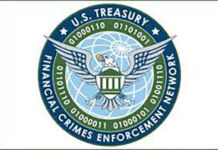
The last day of April 2020 (and what a month it has been) brings 4 Texas Anti-Slapp Opinions. Tomorrow I’ll cover the other two, but first up is a 67 page opinion from the Fort Worth COA in Phoung Nguyen et al v. Able Communications, Inc., No. 02-19-00069-CV (Ft. Worth COA April 30, 2020), reversing the trial court’s denial of a Texas Anti-Slapp motion.
Phoung is another Garden Variety Non-Compete action, where the claims are exactly what you would expect when Former Employee leaves and has a non-compete: breach of contract, fiduciary breach, fraud by nondisclosure, aiding and abetting, tortious interference, misappropriation of trade secrets, civil theft, civil conspiracy, and the ever popular TRO/TI request. As is often the case, the Former Employee’s New Employer is added in for good measure.*
The Ft. Worth COA bypassed any discussion of ROA, instead applying the Right of Free Speech because the communications underlying the claims related to bidding on governmental contracts.
Other than the fraud by nondisclosure claim against Nguyen, which we discuss more below, each of the challenged claims involved an allegation that Nguyen made communications about ABLe’s work on the 2014 fiber contracts and its bids for the DFW contracts awarded to E2; about E2’s bid for the 2018 contracts; about Nguyen’s, E2’s, and Southwest’s potential and current work on those contracts; or about recruiting (hence communicating with) ABLe employees to work on those contracts. These communications were on an issue related to services in the marketplace and related to the government (DFW and its public bid process), and they involved concerns that have “public relevance beyond the pecuniary interests of the private parties involved.” Creative Oil & Gas, LLC v. Lona Hills Ranch, LLC, 591 S.W.3d 127, 136 (Tex. 2019)
Having determined RFS covers all claims except fraud by non-disclosure as to Former Employer, the Court quickly eliminated the non-movants commercial speech exemption (because the speech wasn’t targeted at a consumer).
Next up, Step 2: Did the non-movant meet the evidentiary burden for each element of the claims covered by the TCPA?
This case is an excellent reminder that evidentiary burdens require more than simple conclusions. The interference with non-compete claims faltered because of the overbreadth of the non-compete. The fiduciary duty claims collapsed, in part, because of the internal contradictions within the non-movant’s evidentiary presentation.**
The TUTSA claim evaporated, with the Ft. Worth COA poignantly noting that a lack of detail and evidence barred a “rational inference” that trade secrets were provided to New Employer. Former Employer also could not establish that the company “rolodex” was a trade secret. This analysis gutted the Texas civil theft claim as well.
The Ft. Worth COA reached a split decision on the fraud by non-disclosure claim, determining that the TCPA did not cover Former Employee because the claim is based on an absence of communication. But as to the New Employer, the TCPA did apply, in part I suspect, because of how plaintiff positioned the conspiracy and aiding and abetting claim. Nonetheless, plaintiff failed to meet its evidentiary burden, in particular as to damages.
It does bear repeating, the New TCPA has exemptions that probably prevent this from occurring in the future.
*The opinion is complicated in that there are three defendants, Former Employee, New Employer (which was a subcontractor) for the third defendant. To make it simple, I refer to them as both as New Employer. Former Employee did not move to dismiss every claim brought against him, but the COA had to address all of the claims because of the derivative nature of plaintiff’s claims.
** This argument is intriguing from a TCPA perspective because I have not seen this argument advanced before, and the Ft Worth COA did not reference any case law on this point.






